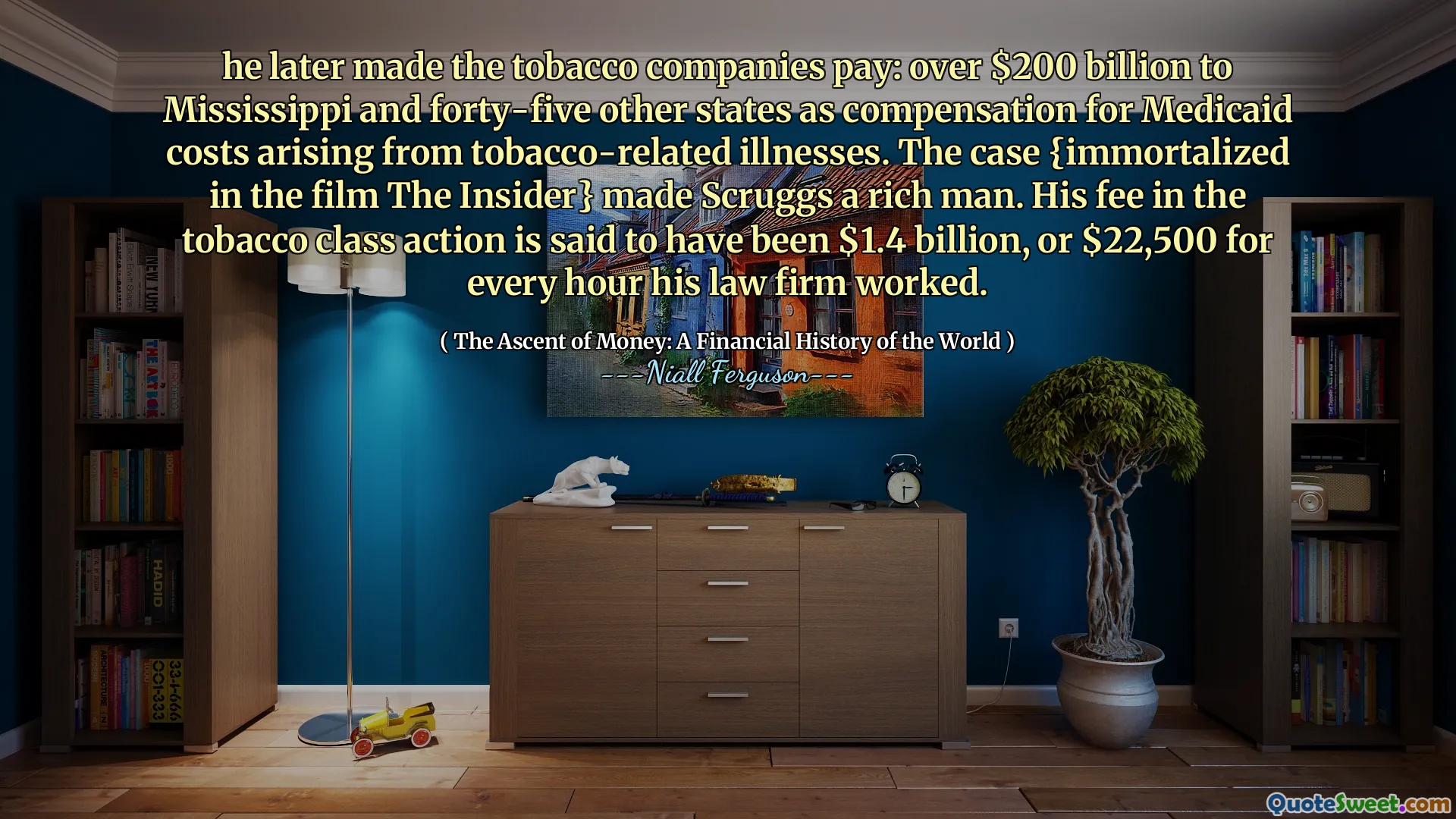
he later made the tobacco companies pay: over $200 billion to Mississippi and forty-five other states as compensation for Medicaid costs arising from tobacco-related illnesses. The case {immortalized in the film The Insider} made Scruggs a rich man. His fee in the tobacco class action is said to have been $1.4 billion, or $22,500 for every hour his law firm worked.
In Niall Ferguson's book, "The Ascent of Money: A Financial History of the World," the story of attorney Dickie Scruggs is highlighted for his pivotal role in holding tobacco companies accountable for their health-related costs. Scruggs led a significant legal battle that resulted in tobacco firms paying over $200 billion to Mississippi and other states, aimed at compensating for Medicaid expenses linked to tobacco-related diseases. His legal efforts not only addressed public health concerns but also transformed the financial landscape for those affected by tobacco use.
The outcome of this landmark case greatly enriched Scruggs, earning him a staggering fee believed to be $1.4 billion, which translates to approximately $22,500 for every hour his law firm worked. The narrative of his courtroom triumph reflects not only a personal victory but also signifies a broader shift in the accountability of major corporations for their actions. This case, which inspired the film “The Insider,” immortalized Scruggs as a key figure in the fight against corporate malpractice in the tobacco industry.











